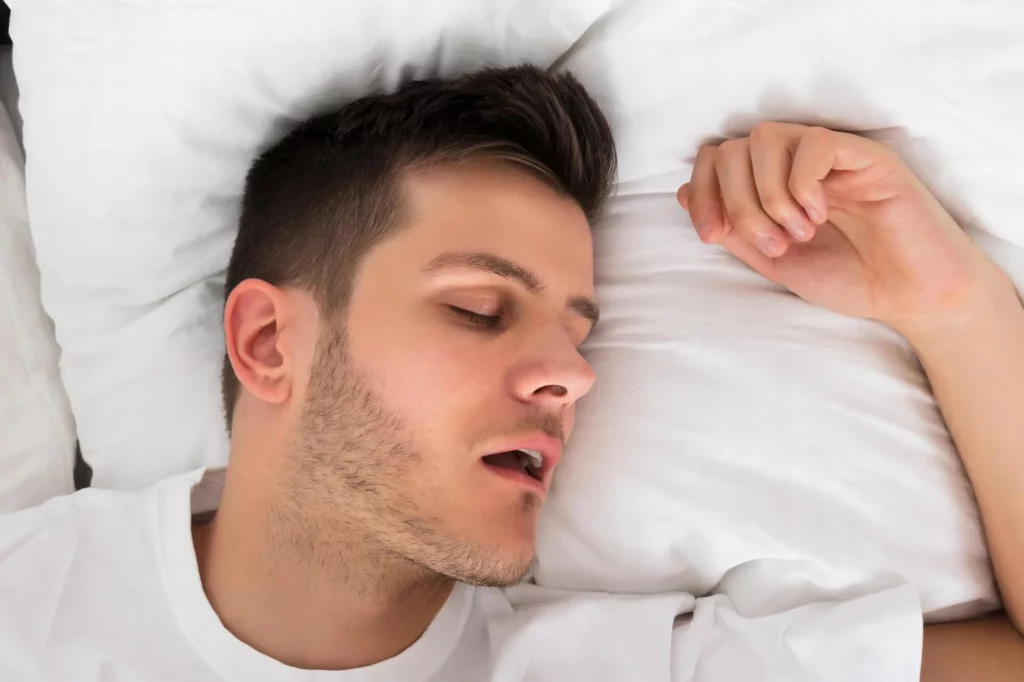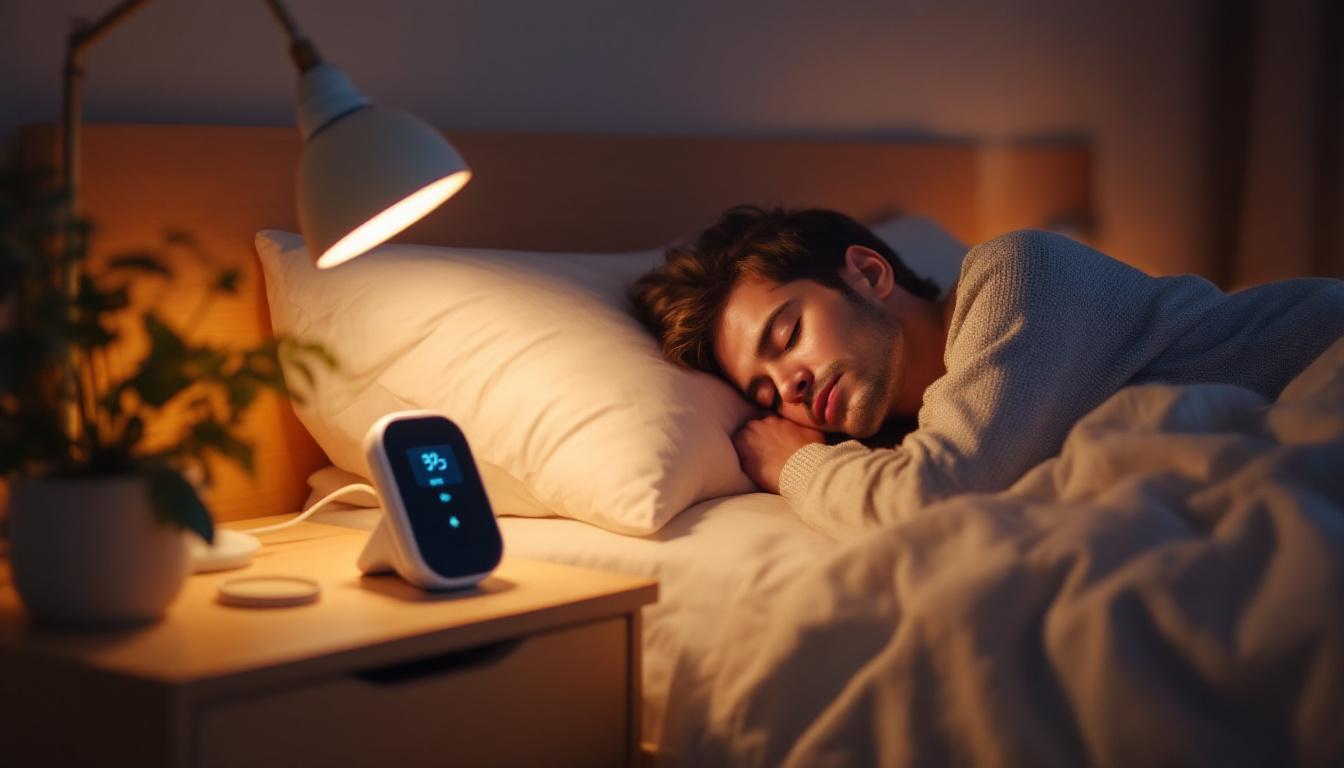Sleep apnea is a serious sleep disorder that affects many Australians, often without them even realising it. Characterised by repeated interruptions in breathing during sleep, this condition can lead to various health complications if left untreated. In Brisbane, understanding the signs of sleep apnea and seeking appropriate testing is crucial for maintaining overall health and well-being. This article will explore the key indicators of sleep apnea, the importance of diagnosis, and the testing options available in Brisbane.
Understanding Sleep Apnea
Sleep apnea occurs when a person’s breathing is disrupted during sleep, leading to a decrease in oxygen levels in the blood. There are three main types of sleep apnea: obstructive sleep apnea (OSA), central sleep apnea (CSA), and complex sleep apnea syndrome. Among these, OSA is the most prevalent, often caused by the relaxation of throat muscles during sleep, which blocks the airway.

Sleep apnea is a condition that should not be taken lightly. Recognising the signs and symptoms early can lead to timely diagnosis and treatment and sleep apnea test Brisbane, significantly improving quality of life. Individuals in Brisbane experiencing excessive daytime sleepiness, morning headaches, or changes in mood should not hesitate to seek professional help.
Recognising the signs of sleep apnea is essential for early intervention. Many individuals may dismiss their symptoms as mere fatigue or stress, but understanding the more serious implications of untreated sleep apnea is vital. It can lead to chronic health issues such as cardiovascular disease, diabetes, and even stroke. Furthermore, the impact of sleep apnea extends beyond physical health; it can also significantly affect mental well-being, leading to increased anxiety and a reduced quality of life.
Common Symptoms of Sleep Apnea
The symptoms of sleep apnea can vary from person to person, but there are several common indicators that should not be overlooked. These include loud snoring, gasping or choking during sleep, excessive daytime sleepiness, and difficulty concentrating. Individuals may also experience mood changes, irritability, and even depression. In some cases, partners of those affected may notice that their loved ones stop breathing for short periods during the night, a phenomenon that can be alarming and indicative of a more serious condition.
It is important to note that not everyone who snores has sleep apnea, but if snoring is accompanied by any of the aforementioned symptoms, it may warrant further investigation. Individuals who share a bed with someone who snores should encourage them to seek medical advice if they observe any signs of breathing difficulties during sleep. Additionally, keeping a sleep diary can be beneficial; recording sleep patterns, duration, and any disturbances can provide valuable information for healthcare professionals when assessing the situation.
Learn more on: Home Sleep Study Brisbane: What Are the Benefits
Risk Factors for Sleep Apnea
Several risk factors can increase the likelihood of developing sleep apnea. These include obesity, age, gender, and family history. Men are generally more likely to develop sleep apnea than women, although the risk for women increases after menopause. Lifestyle factors such as smoking and alcohol consumption can also contribute to the severity of the condition. Interestingly, certain ethnic groups, such as those of African, Hispanic, or Pacific Islander descent, may also have a higher predisposition to sleep apnea, highlighting the importance of cultural and genetic factors in understanding this disorder.
Understanding these risk factors can help individuals assess their own likelihood of experiencing sleep apnea. Those who fall into multiple risk categories should be particularly vigilant about monitoring their sleep patterns and overall health. Regular check-ups with healthcare providers can facilitate early detection and management of sleep apnea, potentially leading to lifestyle changes that improve overall health and well-being. Furthermore, engaging in regular physical activity and maintaining a balanced diet can significantly reduce the risk of developing this condition, promoting not only better sleep but also enhanced quality of life. Learn more about management on https://hsa.edu.pk/departments/health-management/
The Importance of Diagnosis
Early diagnosis of sleep apnea is crucial for effective management and treatment. Many individuals remain unaware of their condition until it leads to more severe health problems. A proper diagnosis typically involves a sleep study, which can be conducted in a sleep clinic or at home using portable monitoring devices.
In Brisbane, healthcare professionals are equipped to carry out comprehensive assessments to determine the presence and severity of sleep apnea. This often includes a detailed medical history, physical examination, and possibly a referral for a sleep study. The results of these tests can guide the appropriate treatment options, which may range from lifestyle changes to the use of continuous positive airway pressure (CPAP) machines.
How Sleep Studies Work
A sleep study, or polysomnography, is a diagnostic test that records various physiological parameters during sleep. This includes monitoring brain waves, oxygen levels, heart rate, and breathing patterns. In a clinical setting, patients are usually connected to multiple sensors, while at-home tests may involve fewer devices.
The data collected during the sleep study provides valuable insights into the patient’s sleep architecture and any disruptions that occur. This information is crucial for determining the best course of action for treatment and management.
Signs You Shouldn’t Ignore
Being aware of the signs of sleep apnea is essential for timely intervention. Here are some key indicators that should prompt individuals to seek a sleep apnea test in Brisbane.
Excessive Daytime Sleepiness
One of the most significant signs of sleep apnea is excessive daytime sleepiness. Individuals may find themselves feeling unusually tired during the day, regardless of how much sleep they believe they have had. This can lead to difficulties in concentration, decreased productivity, and even accidents while driving or operating machinery.
Daytime sleepiness is not merely a result of a busy lifestyle or lack of sleep; it can be a direct consequence of interrupted sleep cycles caused by sleep apnea. If excessive sleepiness persists despite adequate sleep duration, it is advisable to consult a healthcare professional.
Morning Headaches
Waking up with headaches is another sign that may indicate sleep apnea. These headaches can be attributed to decreased oxygen levels during the night, leading to increased carbon dioxide levels in the blood. This imbalance can trigger headaches upon waking, often accompanied by feelings of grogginess.
If morning headaches become a regular occurrence, it is essential to seek medical advice. A healthcare professional can evaluate the symptoms and recommend appropriate testing to determine if sleep apnea is the underlying cause.
Changes in Mood and Behaviour
Individuals with sleep apnea may experience significant changes in mood and behaviour. Irritability, anxiety, and depression can arise from the cumulative effects of poor sleep quality. The frustration of feeling tired and unable to function properly can exacerbate these feelings, creating a vicious cycle. Click here to find more about quality.
Recognising these emotional and behavioural changes as potential indicators of sleep apnea can help individuals take proactive steps towards seeking diagnosis and treatment. Mental health is closely linked to sleep quality, and addressing sleep issues can lead to improvements in overall well-being.
Seeking Help in Brisbane
If any of the signs mentioned above resonate, it is crucial to seek help from a healthcare professional in Brisbane. Many clinics and sleep specialists are available to provide comprehensive assessments and testing for sleep apnea. Early intervention can significantly improve quality of life and reduce the risk of associated health complications.
What to Expect During a Consultation
During a consultation, healthcare professionals will typically begin by discussing the patient’s medical history and any symptoms they may be experiencing. This initial assessment is crucial for determining the likelihood of sleep apnea and the need for further testing.
Patients may be asked to complete questionnaires regarding their sleep habits and daytime functioning. This information helps to build a clearer picture of the individual’s sleep patterns and any potential issues. Based on the findings, the healthcare provider may recommend a sleep study or suggest lifestyle changes as a first step.
Testing Options Available
In Brisbane, there are various testing options available for diagnosing sleep apnea. Home sleep testing has become increasingly popular, allowing individuals to undergo testing in the comfort of their own homes. This method is less invasive and often more convenient, although it may not be suitable for everyone.
For those requiring a more comprehensive assessment, in-lab sleep studies offer a detailed evaluation of sleep patterns and breathing. These studies are conducted in a controlled environment, providing accurate data for diagnosis and treatment planning.
Conclusion

By understanding the importance of sleep health and the available testing options, individuals can take proactive steps towards better sleep and overall well-being. Sleep is a fundamental aspect of health, and addressing sleep apnea is essential for leading a healthier, happier life.

